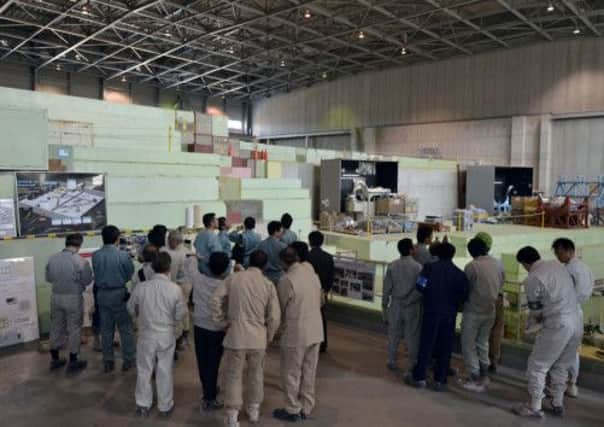Japan: Radiation leak after lab test overheats


The Japan Atomic Energy Agency said the accident occurred on Thursday in its Hadron Experimental Facility at the Japan Proton Accelerator Research Complex in the town of Tokaimura, where at least two previous radiation accidents have occurred.
Those affected were not admitted to hospital and no impact was expected outside the facility.
Advertisement
Hide AdAdvertisement
Hide AdResearchers were trying to generate particles by directing a proton beam at some gold when their equipment overheated, causing the evaporation and release of radioactive gold, the government-run JAEA said in a statement.
The leak originally was thought to have been contained inside the lab, and when a ventilation fan was switched on the radiation spread, it said.
The JAEA said it was studying the potential environmental impact from the radiation leak, but did not expect any effect on surrounding areas.
Yesterday, officials from the JAEA and the research complex apologised for the accident. Japan’s education minister Hakubun Shimomura described the incident as “regrettable”.
Six researchers were found to have been exposed, Kyodo News Agency reported. Initial tests showed that another 24 had probably been exposed.
The JAEA reported that the highest radiation dose it found was 1.7 millisieverts, about the average annual background dose for someone living in Japan. Nuclear workers generally are limited to 100 millisieverts of exposure over five years.
The belief that the leak had been contained led the research institute to delay reporting the incident until Friday, when it notified both the Nuclear Regulation Authority and the local government. Work was suspended at the research facility.
Japan’s nuclear industry has been in crisis since the March 2011 accident at the tsunami-hit Fukushima Dai-ichi nuclear plant, the country’s worst-ever atomic energy disaster. Most of Japan’s nuclear plants remain closed after they were shut down for safety checks.